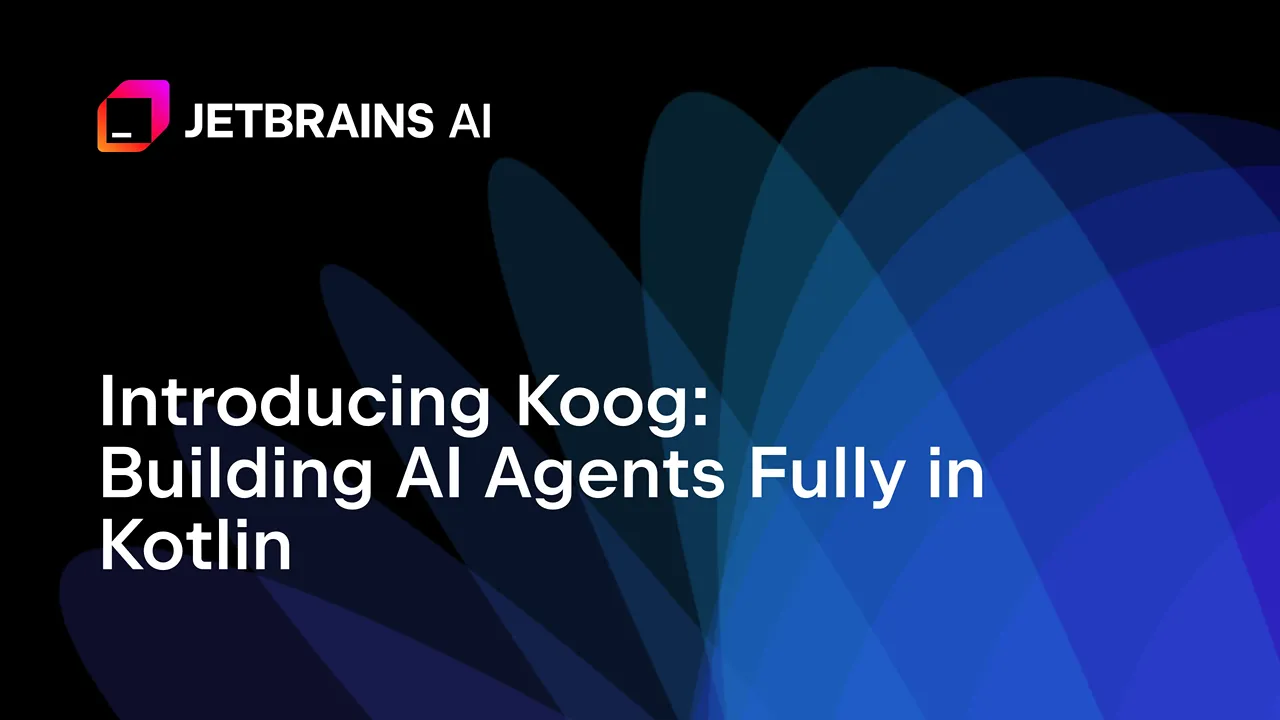Introduction: Kotlin and JVM Storm the World of AI Agents
The JVM ecosystem, and particularly the Kotlin programming language developed by JetBrains, continues to expand its influence, actively mastering cutting-edge technological advancements. Kotlin, known for its conciseness, safety, and excellent Java interoperability, has long established itself in mobile and server-side development. Now, it seems JetBrains is making a serious bid for leadership in the booming field of artificial intelligence, specifically in the creation of AI agents. Around May 22, 2025, the company introduced JetBrains Koog framework|Koog, an ambitious new open-source framework designed to simplify and systematize the development of intelligent agents entirely in idiomatic Kotlin. This move not only underscores JetBrains' (creators of popular tools like IntelliJ IDEA) commitment to being at the forefront of innovation but also opens new horizons for Kotlin developers eager to delve into the world of AI.
What is Koog: Perception, Action, Learning in Kotlin
JetBrains Koog framework|Koog is positioned as a flexible and powerful tool for creating AI agents – autonomous software entities capable of perceiving their environment (through various data sources), making decisions, taking actions to achieve set goals, and, importantly, potentially learning from experience. The core idea of the framework is to provide developers with high-level abstractions and components, allowing them to focus on the agent's behavioral logic rather than the low-level details of its interaction with the world or internal mechanisms. Being an open-source project, Koog invites the community to actively participate in its development and adaptation for various needs.
Koog's Architecture and Key Features
At the heart of Koog's architecture are three fundamental components typical of most agent systems: Perception – modules responsible for collecting and interpreting data from external sources; Memory – components for storing and managing knowledge, both short-term and long-term; and Action – mechanisms enabling the agent to interact with its environment or perform internal computations. One of Koog's strengths is its native support for modern Kotlin features like coroutines for efficient handling of asynchronous operations and concurrency, which is critical for creating responsive and performant agents. The framework is also designed for easy integration with existing Kotlin libraries and frameworks, allowing developers to use familiar tools and extend Koog's functionality.
Use Cases: From Smart Assistants to Game AI
The potential applications for Koog are quite broad. Developers can already experiment with creating prototypes of smart personal assistants capable of executing complex commands and interacting with various services. In the gaming industry, Koog could become the foundation for developing advanced artificial intelligence for non-player characters (NPCs) with more realistic and adaptive behavior. Its use in creating intelligent interface agents that automate routine user tasks or provide context-aware assistance in complex software products also looks promising.
Community, Documentation, and Prospects
Koog's code is already available on GitHub, allowing anyone interested to explore its structure and contribute. JetBrains promises to provide detailed documentation, usage examples (starter templates), and actively support the community around the framework. In the context of existing AI agent development solutions like LangChain, Autogen, or CrewAI, Koog stands out for its deep integration specifically with the Kotlin and JVM ecosystem. This opens up interesting prospects for using Koog as an integrator for working with large language models (LLMs) within JVM applications, offering a typed and idiomatic approach for Kotlin developers.
Conclusion: Kotlin Confidently Enters the AI Market
The launch of Koog is a landmark event, demonstrating that Kotlin is not only following trends but also striving to shape them in the field of artificial intelligence. By providing developers with a powerful and flexible open-source platform for creating custom AI agents, JetBrains Koog framework|Koog has every chance to become an important tool in the arsenal of Kotlin developers and contribute to the emergence of a new generation of intelligent applications on the JVM platform.
